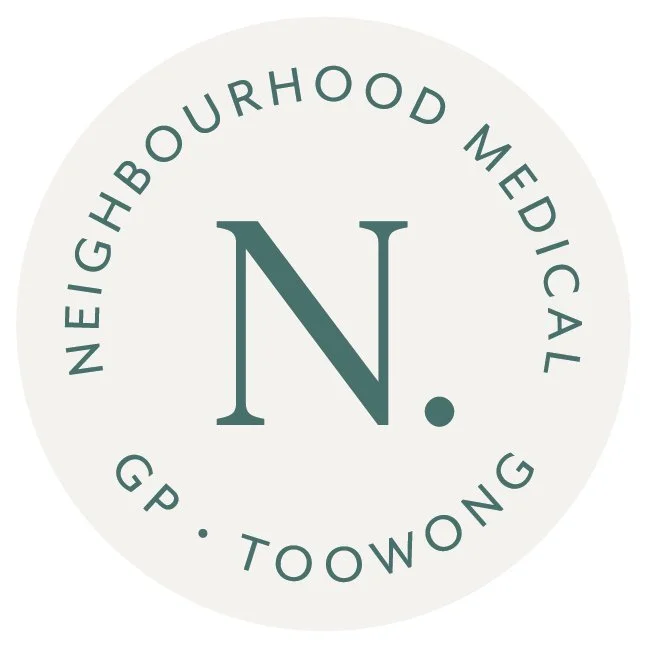Women’s Health Week: Top tips for each life stage
Dr Sarah McDonnell
The Teen Years
o Periods: It’s not all smooth sailing – erratic, painful or heavy periods are not just something you have to put up with. If your periods get in the way of life, your GP can help.
o Mental Health: If you (or the people who love you) are worried about anxiety, body image or eating, or just regulating big emotions, we are here to listen and help.
o Sexual Health: What’s “normal”? What’s safe? What checks do I need? What options do I have for contraception? Your GP can provide reliable and confidential information and support you through all your choices.
o Build Those Bones and get active! Eating well and exercising in your teens and into your twenties literally builds the bones you need to carry you through the rest of your life. Do yourself a favour and find what works for you.
o Sun Protection: The UV that hits your skin now will cause premature aging and skin cancer maybe just a few years down the line. It’s not unusual for Queenslanders to have skin cancers in their 20s and 30s – covering up and using daily facial sunscreen might stop you being one of them.
Twenties and Thirties
o Periods – again!: Yeah, some of us take a while to get this side of things sorted. If you have an erratic cycle, your GP can check for hormonal causes such as polycystic ovarian syndrome (PCOS), and let’s not forget about endometriosis – which causes painful periods along with many other symptoms.
o Cervical Screening and STI Checks: Screening for cervical cancer now starts at 25, and we advise that everyone under 30 considers an annual chlamydia screen. Things picked up early are more easily treated.
o Contraception and Fertility: If kids are not on your agenda now (or at all), you need reliable contraception in place if sexually active. There are many effective and safe options to consider, and your GP can help navigate these. On the other hand, if you are planning a pregnancy, it’s a good idea to pre-empt any issues by checking out your own health and maybe considering genetic carrier screening. If you are trying, and not having an easy time, your GP can start the ball rolling to figure out why.
o Check Out Your Family History: Now is the time to find out if there is a family history of early onset heart disease, diabetes, cancer or other hereditary illnesses, so we can arrange screening or preventive measures - including lifestyle changes - to set you on the best path. The things you do now create a legacy going forward.
o Start Regular Skin Checks and keep them up, along with sun protection!
Forties and Fifties
o Stress Management and Mental Health: These decades can often be spent juggling the demands and pressures of kids and aging parents, career, relationship issues and a million other things. Hormonal changes don’t help! Now may be the time to take stock of your own wellbeing, especially if you are experiencing anxiety or depression. Your GP can help.
o Perimenopause: Yep, it’s definitely a real thing, and it starts several years before the main event, with hormonal fluctuations that, for some women, cause very significant mental and physical symptoms lasting anywhere from 1-10 years. This is a HOT TOPIC now but don’t believe everything you read and hear online - speak to a GP with an interest in menopause medicine to find out what options are best to help you navigate this stage of life.
Premenstrual symptoms can worsen during this time and your GP can offer multiple options to smooth things out. Contraception is still relevant too - you’re not out of the woods yet! Women can remain fertile right up until menopause and into their 50s, so if it’s relevant to you, don’t take any chances.
o Cancer Screening: Most of us in this age group will start to hear of friends and family developing cancer. There are government-funded screening programs in place for breast (froma age 40) and bowel cancer (from age 45), and other options available for those identified as higher risk. Regular skin checks are super important here in sunny Queensland.
Menopause and Beyond
o Managing Menopausal Symptoms: There are many ways to help alleviate troublesome menopausal symptoms, which can last for years. You can talk to one of the GPs at Neighbourhood who provide menopause consultations for help navigating your options.
o Heart Health and Diabetes: After menopause, women’s risk of heart attacks and other cardiovascular problems starts to reach a similar level to men, but this is often forgotten. Make sure your blood pressure, cholesterol and blood sugar are under control and keep active to reduce risk and maintain bone and muscle strength.
o Cancer Screening: Government screening programs for breast cancer and cervical cancer are run up until the age of 70, and the National Bowel Cancer screening program runs from age 50-74. At the very least, try to keep up with these programs, plus skin checks, and have a chat with your GP about any other concerns.
o Bone Health: If you have never had a bone density scan, it’s a good idea to have one at or after menopause to ensure your bones are strong enough to avoid the dreaded hip fractures! This is a simple test which your GP can request.
o Memory worries: Your GP can help reassure you that all is well or seek further help if needed.



